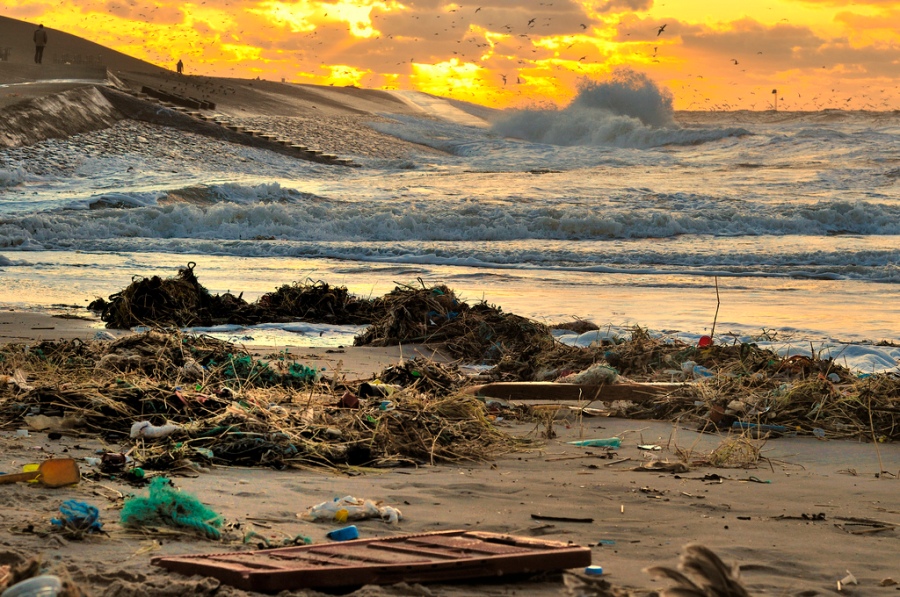An estimated eight million individual pieces of litter debris enter our oceans every day! That’s over 6 million tonnes of litter entering our oceans every year, which is the equivalent to the weight of 1 million elephants. Blows my mind every time I think about it.
This astonishing amount of litter risks the lives of 177 species of reptiles, mammals and fish. Every time you leave one piece of litter on the beach you could be killing organism after organism. Marine litter takes about 50 years before it washes from the coast to the gyres where it will remain until it degrades – that’s if it ever breaks down.
Plastic litter on beaches has increased 140% since 1994.
140%, but as mentioned in a previous post, beaches only receive 15% of litter that enter the oceans. Consider how dire our situation is if we don’t change now, as it isn’t just the marine mammals in danger. There are over 1 million sea bird deaths each year due to marine litter, but it’s not just the reptiles, birds, mammals and fish that are being affected. This is a much larger scale issue.
Cigarettes – 4.5 trillion cigarette butts enter the environment every year.
When cigarettes are wet they release toxic chemicals and obviously some will end up on our beaches, slowly poisoning the sand, and then when they break down into their fibres, they are often eaten by marine organisms, which can choke them or cause starvation.
Local Authorities in the UK spend approximately £18 million each year removing beach litter, which represents a 37% increase in cost over the past 10 years.
We are causing beaches to become flooded with litter. It doesn’t just make the beach unsightly, but it can potentially cause injury to people. Debris like medical waste (syringes), broken glass and rusty metals are washed up and are waiting for someone to step on. This is an obvious health risk and also has a negative effect of the aesthetic value of the coastline and beaches, so tourists and residents are willing to pay less to visit, or stop visiting all together. The service value of the area also significantly reduces, which will affect communities which rely on the tourism and income of tourists.
Scottish fishing vessels survey – 86% restricted catch due to marine litter, 82% had catch contaminated 95% snagged gear on debris in water.
Approx. 58% of marine litter is attributed to shoreline and recreational activities. That drops the responsibility to us – we can’t continue to pass the blame for our beaches to industry or government – the faulty primarily stops with us and what we do. Sad, isn’t it? We are destroying something we enjoy so much.
In the UK many SCUBA divers will carry knifes with them or know someone who does as it’s known for divers to become caught in rope, fishing line, plastics, and be unable to become free, leading to a risk that people will drown. The fact is that our littering can risk lives and kill people. According to the British Sub-Aqua Club, approximately one or two entanglement incidents occur each year in the UK and are potentially life-threatening, usually involving monofilament netting. Swimmers, surfers and anyone else who enters the water are also at risk. Boats can also become entangled in rope, causing boating accidents with many smaller vesicles propellers becoming damaged when hit with marine litter.
70% of ports and marinas in the UK have reported users experiencing incidents involving litter.
Water at public swimming spots is being cleaner every year in the UK. However, some of Britain’s best known beaches were set to fail new EU standards in 2015. But in the year before the government were able to plan and improve the water quality by changing drainage systems and removing litter. 97% of the UKs beaches were able to meet new tighter regulations. Why can’t we work this hard when it’s not a regulation in place? Why should it take the risk of losing our public beaches for us to act to save them?
Josh 🙂
References:

Good work! Very interesting 🙂
LikeLike
Very interesting, thanks for the read!
LikeLike
oohh goshh!! didn’t know cigarettes did so much damage, such a bad habit as well.
LikeLike